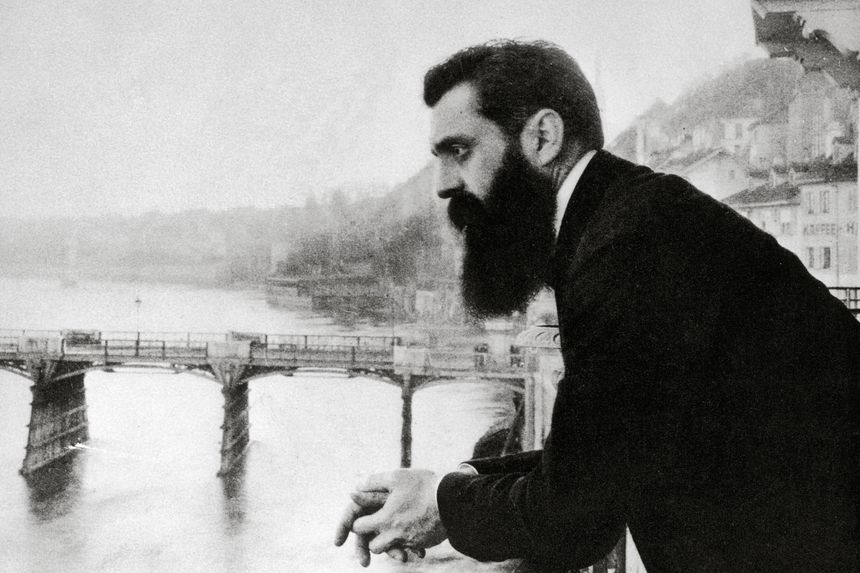The Little Nation That Could
A train ticket in Israel printed in Hebrew? The father of Zionism thought it was impossible.

During a recent visit to Israel I availed myself of the new high-speed train that connects Tel Aviv and Jerusalem. Above all, rail offered a cheaper and quicker trip than road. Yet traveling through tunnels in the sacred soil of the Holy Land, and across bridges spanning mountains, my practical decision also led to an experience unexpectedly filled with wonder.
Theodor Herzl, the father of modern Zionism, burst onto the scene with his 1896 pamphlet, “The Jewish State.” He argued that Jews around the world could unite and create a commonwealth. Herzl followed this with “The Old-New Land.” The novel describes a Jewish state restored: its cities connected by wondrous electric trains high in the air, with smaller ones offering transportation around Jerusalem. Today, as many have noted, that vision has been fulfilled, and the novel’s famous epigraph—usually translated as “If you will it, it is no dream”—has been vindicated.
Once I returned to New York, I cleaned out my pockets and found the train ticket from my trip. I was struck by the words stamped on it in Hebrew: rakevet yisrael, the train of Israel. Herzl had assumed that Hebrew, which had survived in Jewish learning and liturgy only, could never be resurrected as a spoken language. “Who amongst us has a sufficient acquaintance with Hebrew to ask for a railway ticket in that language?” he wrote in his landmark pamphlet. “Such a thing cannot be done.” That tiny ticket embodied the exceeding of Herzl’s already grand expectations.
Continue reading at the Wall Street Journal [subscription required].
A train ticket in Israel printed in Hebrew? The father of Zionism thought it was impossible.
A train ticket in Israel printed in Hebrew? The father of Zionism thought it was impossible.

